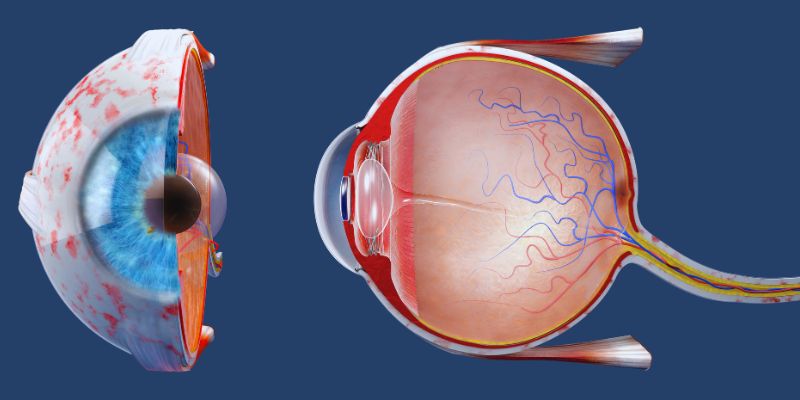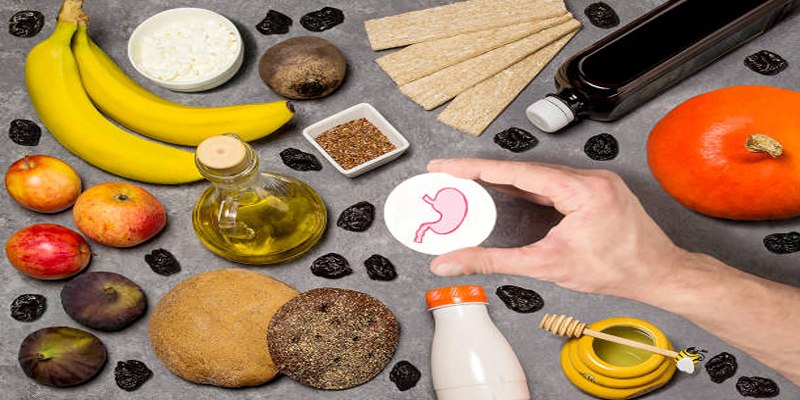Macular Degeneration: Know About the Foods That You Should Avoid
AMD disorder affects the maculathe center portion of the retina in charge of sharp vision. Although macular degeneration is partly caused by aging and genetics, lifestyle choices, especially diet, can greatly affect its course. Certain foods can aggravate the disorder, hastening vision loss and causing more tissue damage in the eye.
Those trying to stop or reduce the development of macular degeneration must first understand the kinds of meals that might compromise their eye health. This article will include particular items to avoid and dietary changes to support your vision.
Processed Foods and Their Impact on Eye Health
Usually heavy in harmful components such as trans fats, refined sugars, and too much salt, processed foods can aggravate macular degeneration. These foods are handy, but they can be detrimental if eaten often. Processed foods include chips, cookies, crackers, and even frozen dinners, including artificial additives and preservatives that aggravate inflammation all across the body, including the eyes. One of the main causes of oxidative stressa disorder in which the body's free radical count is off-balanceis inflammation. This oxidative stress compromises retinal cells, which causes age-related macular degeneration to advance.
Furthermore, processed foods lack vital nutrients the eyes require to be healthy. Good eyesight and eye protection from oxidative stress depend on nutrients such as vitamins A, C, and E, zinc, and lutein. Eating processed meals robs your body of the nutrients required to maintain eye health. Rather, you run more danger, aggravating your eyesight issues. Selecting full, unprocessed foods high in vital nutrients helps reduce the macular degeneration risks.
High-Glycemic Foods and Their Role in Macular Degeneration
High-glycemic index (GI) foods can drastically affect blood sugar, which can cause health problems, including the advancement of macular degeneration. High-glycemic diets quickly raise blood glucose levels, which may compromise the blood vessels supplying the retina over time. These blood sugar swings can hasten macular degeneration by raising oxidative stress and eye inflammation.
Typical high-glycemic foods are white bread, pastries, sugary cereals, white rice, and processed snack items. Because these foods break down quickly, blood sugar and insulin levels rise quickly. Frequent blood sugar rises might cause insulin resistance and diabetes, both of which increase the risk for aggravation of AMD. Low-glycemic substitutes for high-glycemic foods will help safeguard your vision. Low-glycemic diets that assist in controlling blood sugar levels and lowering the danger of retinal damage include legumes, grains, and leafy green vegetables.

The Dangers of Saturated Fats
Saturated fats are another dietary element that might compromise eye health, especially for macular degeneration sufferers. These fats can build up in blood arteries and are found in red meat, butter, cheese, and other full-fat dairy items. When they develop in the retina's blood vessels, these deposits can impede blood flow, depriving the eyes of the oxygen and nutrients required for healthy operation.
A diet heavy in saturated fats can also lead to the onset of cardiovascular disorders, including atherosclerosis, in which case plaque accumulation causes the arteries to become hardened and narrowed. Reduced blood flow to the retina might cause more macula damage, therefore aggravating the course of AMD.
Apart from their detrimental effect on eye conditions, saturated fats can increase LDL (bad) cholesterol, further aggravating inflammation and oxidative stress inside the body. Foods high in fats should be limited to help reduce your risk of heart disease and protect your vision. Choosing better fats found in olive oil, avocados, nuts, and seedswill help your body get the nutrients it needs to keep good eye health and promote general cardiovascular health.
Sodium-Heavy Foods and Their Effects
Too much sodium consumption damages your heart and your eyes. High sodium levels can cause blood pressure to rise, compromising the blood vessels in the eyes. This injury might reduce blood supply to the retina, aggravating macular degeneration. Managing blood pressure is especially important for those with AMD since compromised blood vessels increase the likelihood of vision loss. Even in foods that might not taste very salty, many processed and packaged foods have a large sodium content.
Fast food, canned soups, processed meats like bacon and sausage, and even bread can have hidden salt levels that rapidly increase over the day. Careful reading of food labels helps ensure you are not exceeding the advised salt intake. The American Heart Association counsels daily sodium of no more than 2,300 milligrams, with an optimal limit of around 1,500 mg, particularly for those at risk of heart disease or macular degeneration. Reducing your consumption of high-sodium foods will help preserve your vision and aid in keeping appropriate blood pressure levels.

The Impact of Fried Foods on Vision
Fried foods are popular yet seriously dangerous for those worried about macular degeneration. Foods fried, especially in unhealthy oils like those high in trans fats, produce dangerous molecules known as free radicals. By raising oxidative stress and inflammation, these free radicals can harm your body's cells, including those in your eyes.
Common fried foods, including onion rings, fried chicken, and French fries, are cooked in oils that have been repeatedly used, therefore generating free radicals. Both of these disorders are intimately related to the macular degeneration development. Look at other cooking techniques, including baking, grilling, or steaming, to reduce your consumption of fried meals. These techniques remove the negative consequences of fried food and help to retain its nutrition. These adjustments will help your body lower oxidative stress and guard your eyes from harm.
Conclusion:
Though it can seriously affect your quality of life, macular degeneration can be managed with diet adjustments. You are helping your eyes by cutting processed foods, high-glycemic goods, saturated fats, sodium-heavy meals, and fried foods. Including better substitutes such as whole grains, fresh veggies, and foods high in vital nutrients will help your vision and general health. These little dietary changes could help your long-term eye health and reduce the course of macular degeneration.












